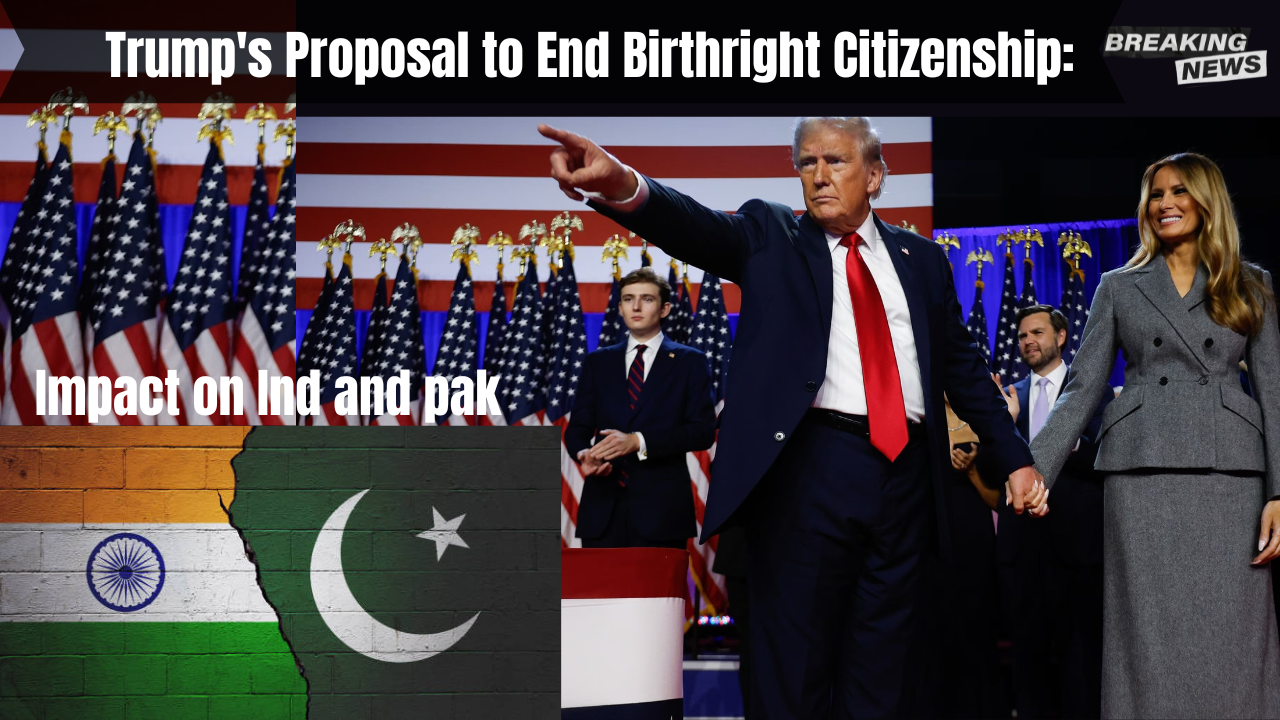Trump Vows to End Birthright Citizenship: What It Means for Indians5

Trump Vows to End Birthright Citizenship: What It Means for Indians 2025
Trump's Proposal: Key Details
Trump has stated that he will sign an executive order to eliminate birthright citizenship. While an executive order may trigger immediate policy changes, the legality of such a move is questionable. Overturning birthright citizenship would likely require an amendment to the Constitution, a complex and lengthy process.
Why Is This Proposal Controversial?
- Legal Challenges: The 14th Amendment explicitly guarantees citizenship to all individuals born in the U.S. Any attempt to nullify this would face significant court battles.
- Impact on Immigrant Communities: Millions of families rely on birthright citizenship to secure their children’s future in the U.S.
- Economic Implications: Critics argue that the policy change could discourage skilled immigrants from moving to the U.S., negatively impacting sectors like technology and healthcare.
Impact on the Indian Community
1. H1-B Visa Holders
The Indian community in the U.S. largely comprises professionals on H1-B visas. For these individuals:
- Children born in the U.S. automatically become citizens, offering them advantages in education and employment.
- Ending birthright citizenship could create uncertainty for families, as children might inherit the temporary status of their parents.
2. Students and Skilled Immigrants
India is a top source of international students in the U.S.:
- Many Indian students aim to settle in the U.S. after completing their education. The lack of birthright citizenship could deter future generations from pursuing opportunities in America.
- Skilled professionals may also reconsider relocating, knowing that their children may not gain citizenship automatically.
3. Indian-American Families
For Indian-American families already established in the U.S., this policy could lead to:
- Increased documentation and legal hurdles to secure citizenship for their children.
- Emotional and financial strain as families navigate a more complex immigration system.
Broader Implications
Economic Impact
Indian immigrants contribute significantly to the U.S. economy, particularly in the tech industry:
- Companies like Google, Microsoft, and Adobe have Indian-origin CEOs.
- Restrictive policies may discourage top talent from moving to the U.S., leading to a "brain drain."
Diplomatic Relations
India and the U.S. share strong bilateral ties:
- Policies perceived as targeting Indian immigrants could strain these relations.
- The Indian diaspora in the U.S. plays a crucial role in fostering goodwill between the two nations.
Legal and Constitutional Challenges
Ending birthright citizenship would require overcoming:
- Constitutional Protections: The 14th Amendment explicitly guarantees this right.
- Public Opinion: Immigrant communities and civil rights organizations are likely to oppose such a move.
Conclusion
Trump's proposal to end birthright citizenship has far-reaching implications for immigrant communities, including Indians in the U.S. While the policy change is far from guaranteed, it raises concerns about legal challenges, economic impact, and the future of skilled immigration. For Indian families and professionals considering the U.S. as a destination, the uncertainty surrounding this issue may prompt a reevaluation of their plans.
As this debate unfolds, one thing remains clear: the future of birthright citizenship is not just a legal question but a reflection of America's values as a nation built on immigration and diversity.
